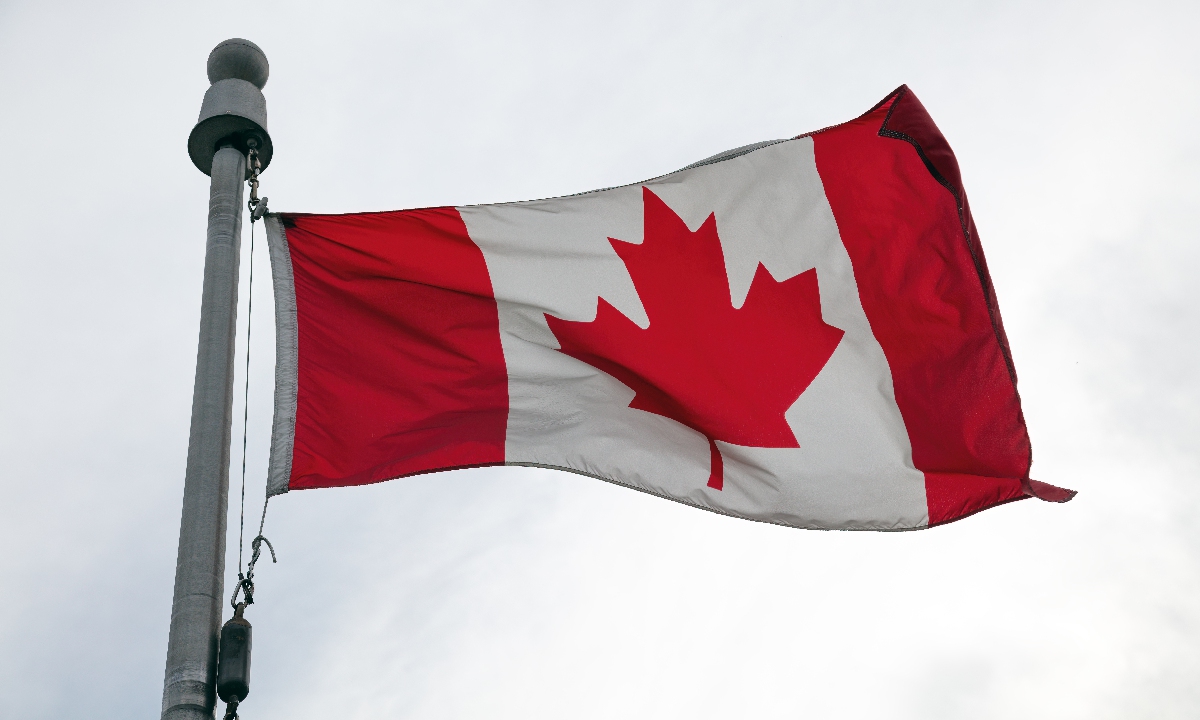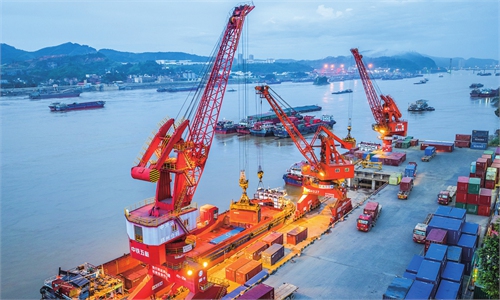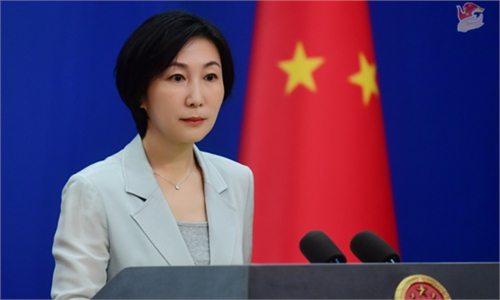The first step to stop damaging bilateral ties is Canada’s cease of anti-China show: Global Times editorial

Photo: VCG
China imposed countermeasures on December 21 against two Canadian organizations as well as 20 personnel from these organizations in accordance with the Anti-Foreign Sanctions Law. This is a stern response and warning to the Canadian side's brutal interference in China's internal affairs. The countermeasures include freezing their movable and immovable properties and other kinds of assets within China, prohibiting all organizations and individuals within China from engaging in transaction, cooperation and other activities with those Canadian institutions and personnel, and denying those people's visas or entry into China (including Hong Kong and Macao). China's determination to safeguard its national sovereignty, security and development interests is firm and its means are sufficient. Therefore, the Canadian side is advised to stop its clumsy anti-China show.On December 10, Canada's foreign minister issued a statement claiming that the country is "deeply concerned" by the so-called human rights issues in Xinjiang and Xizang, and sanctioned eight current or former Chinese officials for "human rights violations." The "Uyghur Rights Advocacy Project" and "Canada-Tibet Committee" have long been notorious in the international arena for focusing on smearing China and attempting to divide it. They have frequently taken advantage of issues related to Xinjiang and Xizang to stir up trouble. Canada has long harbored and condoned these two organizations. It has gone out of its way to provoke China's core interests by standing up for and endorsing them, which, in fact, constitutes interference in China's internal affairs and a serious violation of international law and the basic norms of international relations. The fact that the Government of Canada has so lowered itself to the level of complicity with the riff-raff is a shock to the world.
Xinjiang and Xizang are inalienable parts of China's territory, and mutual respect for sovereignty and territorial integrity is the minimum principle of interaction between China and Canada. No one can deny the fact that the Chinese government adheres to a people-centered approach and attaches great importance to respecting and safeguarding human rights. Neither can anyone deny the fact that China is committed to promoting economic development, social progress and national unity in regions including Xinjiang and Xizang, making great achievements in the human rights cause in China. While ignoring the systematic racial discrimination and injustices still faced by Indigenous people in the country, Canada has arrogantly expressed its "concern" about the so-called human rights issues in China, which are based on lies, and condescendingly imposed unilateral sanctions. In fact, it constitutes a malicious defamation of the human rights situation in China, which is a political farce of "double standards" that is beyond hypocrisy.
Since the beginning of this year, Canada's "anti-China political show" has been constant, with human rights issues being just one of the "regular acts": The country has twice sent warships through the Taiwan Straits, imposed high tariffs on Chinese electric vehicles, and labeled China as a "potential threat" in the Arctic region… In closely following Washington's lead, Ottawa is gradually losing its independence and rationality in foreign relations with Beijing, sometimes even overdoing it and playing the role of a pawn for others' benefit. US media have bluntly pointed out that "It's un-Canadian."
The international community has already seen that Canada is willing to be a "vanguard" for the US' China policy. What is even more tragic is that some politicians still don't realize that playing the "China card" not only fails to gain Washington's support but also isolates Canada internationally. Over time, Canada may face a collapse of its diplomatic image.
Canada and China are thousands of miles apart, with no historical grudges or practical conflicts of interest, and the two peoples have a long history of friendly exchanges and cooperation. The key to stopping the decline in China-Canada relations lies with Canada. The first step is to stop the anti-China show and correct misconceptions about China at both the governmental and public levels. The economic structures and resource endowments of China and Canada are highly complementary, and bilateral trade has grown nearly 500 times since the establishment of diplomatic relations. From this perspective, Canada's "cooling" of relations with China is highly inconsistent with China's long-standing position as Canada's second-largest trading partner. In fact, the negative emotions towards China, manipulated by domestic and foreign politics, have already caused substantial harm to Canada's national interests. Continuing to blindly follow Washington's China containment policies will undoubtedly result in even more harm to Canada.
After multiple rounds of consultations between the civil aviation departments of China and Canada, starting this month, Air Canada will gradually restore direct flights from Vancouver to Shanghai and Beijing and the other way around, with weekly flights reaching seven. The immense cooperation needs and common interests between China and Canada should not be drowned out by erroneous perceptions toward China, and this is the reality that those in power in Ottawa need to face. Hopefully, Canada will soon engage in self-reflection, immediately lift the illegal sanctions against Chinese individuals, stop the clumsy political performances, and create a turning point for China-Canada relations.


